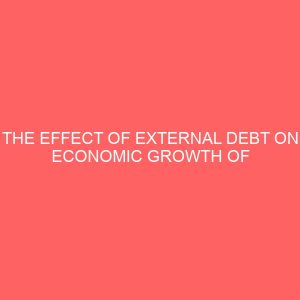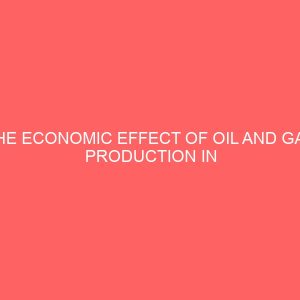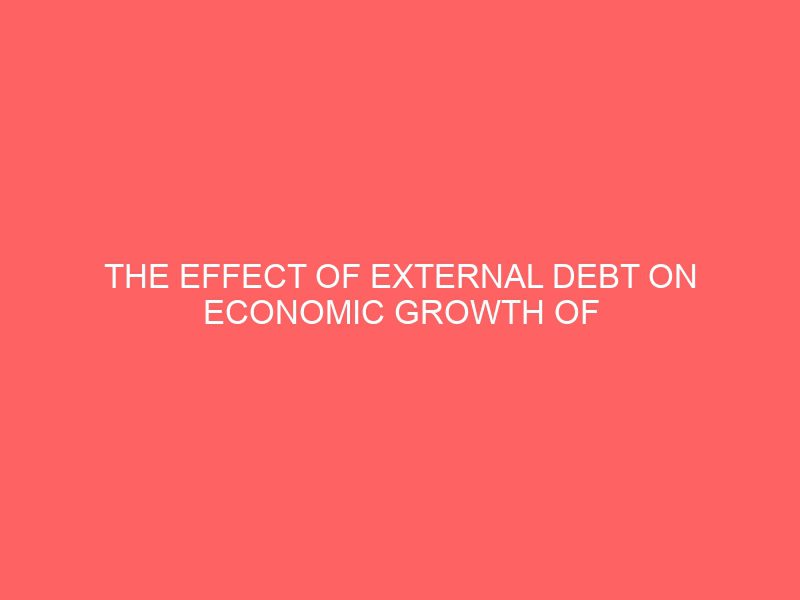Description
This work evolved out of the need to provide an in-depth understanding of the economics of debt in Nigeria. This study aims at analysing the effectiveness of external debt on economic growth within a span of 1981-2010. The broad objective of this work is specified to evaluate the impact of external debt stock and debt servicing on economic growth. In all the models were to show the growth relationship between the independent variables-inflation rate, exchange rate, interest rate, external debt stock and external debt service and the dependent variable-gross domestic product (GDP). The data were collected from CBN Statistical Bulletin 2010 and the Debt Management Office (DMO) quarterly report. The Engle & Grenger Cointegration and Ordinary Least Square (OLS) were employed in the cause of this study. The Augmented Dickey Fuller test (ADF) shows that the variables are stationary and reliable for forecasting. The choice of OLS is most appropriate for the study in terms of goodness of fit and significance of regression coefficients. The result of the analyses showed that rising external debt stock inhibits the pace of economic growth of Nigeria by increasing the cost of its servicing beyond the debt sustainability limit while external debt servicing was found not to impair economic growth. Summary and policy recommendations were presented in line with our stated objectives and facts then conclusions were made. It was found that external debt stock rises rapidly due to accrued compound interest and loans were secured for dubious projects. Part of the policy recommendations were that Nigeria should increase its export base by investing borrowed funds in productive ventures and she should also seek fixed interest payment varying amortization schemes and multi-year rescheduling.







